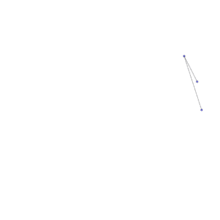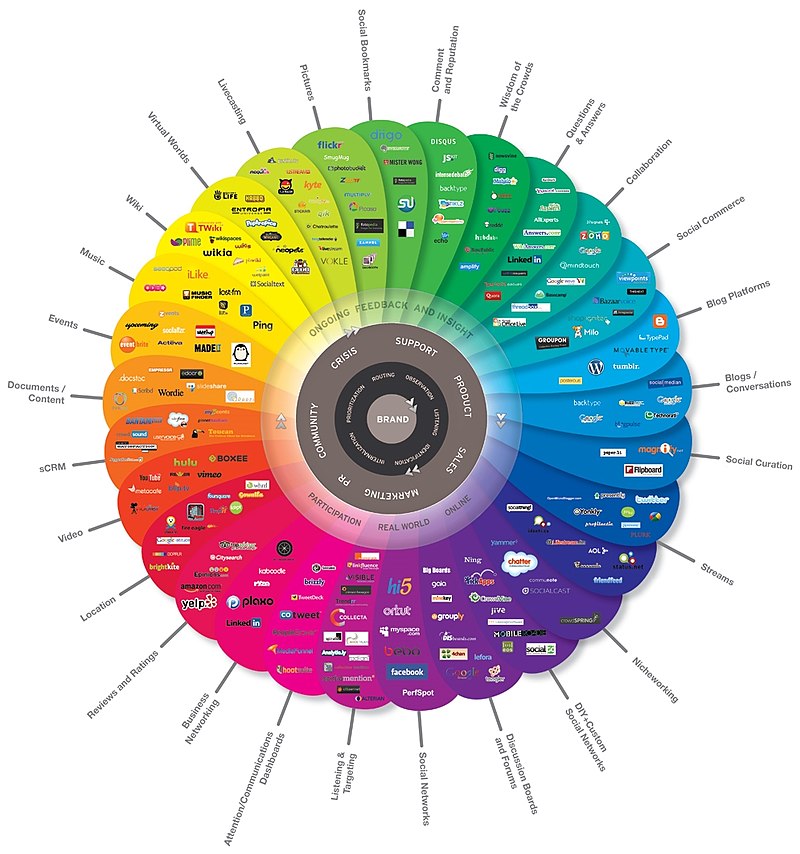Course Glossary
Here are some words that you should be familiar with for this course.
Unless otherwise noted, definitions from Wiktionary. CC BY SA
Special | A | B | C | D | E | F | G | H | I | J | K | L | M | N | O | P | Q | R | S | T | U | V | W | X | Y | Z | ALL
A |
|---|
AllusionUsually a reference to a historical or religious event. Noun
allusion (plural allusions)
| |
B |
|---|
BiasA tendency to believe something. Nounbias (countable and uncountable, plural biases or biasses)
| |
Bioengineering | |
C |
|---|
CloningVerbcloning (countable and uncountable, plural clonings)
| |
ConnotativeAdjective
connotative (comparative more connotative, superlative most connotative)
| |
ConventionGeneral (often implicit) consent; practice based on this; accepted social behaviour especially if artificial or formal; accepted method of conduct used to convey information (Oxford Concise Dictionary) A Guide to Reading and Analyzing Academic Articles, by Amanda Graham, 1997-2012, is licensed under a Creative Commons Attribution-NonCommercial-NoDerivs 3.0 Unported License. | |
CritiquingThis activity is not limited to noting what’s wrong or bad about an article or accomplished by trying to justify your opinion of the article. Critiquing a piece of writing involves considering what the author has either told you or implies she or he is going to do (prove, explain, interpret) in the article and evaluating how well or not the author has done so. A critique can also serve to explain to its readers in what ways the article advances knowledge in the field (or not). In this context, it means an evaluative, thoughtful overview of literature (articles and books) in a particular field. A Guide to Reading and Analyzing Academic Articles, by Amanda Graham, 1997-2012, is licensed under a Creative Commons Attribution-NonCommercial-NoDerivs 3.0 Unported License. | |
D |
|---|
DeductionNoun
deduction (plural deductions)
| |
DNANoun
DNA (uncountable)
| |
E |
|---|
EtymologyNounetymology (plural etymologies)
| |
ExplicitAdjective
explicit (comparative more explicit, superlative most explicit)
| |
F |
|---|
FigurativeFor examples on Figurative Language Adjectivefigurative (comparative more figurative, superlative most figurative)
| |
I |
|---|
ImplicationsWhat we mean when we talk about implications in this context, is the larger meaning that the research or the idea the author has presented might have. When academics conduct and write about research, they intend it to make a difference, even if it’s only in a small way. What might a reader do with the results or the new knowledge presented in the paper? A Guide to Reading and Analyzing Academic Articles, by Amanda Graham, 1997-2012, is licensed under a Creative Commons Attribution-NonCommercial-NoDerivs 3.0 Unported License. | |
ImplicitAdjective implicit (not comparable)
| |
InductionNoun
induction (plural inductions)
| |
Inference | |
InnovationNoun
innovation (plural innovations)
| |
Internet ActivismThe use of electronic communication technologies such as social media, especially Twitter, Facebook, YouTube, e-mail, and podcasts for various forms of activism to enable faster communication by citizen movements and the delivery of local information to a large audience. Internet technologies are used for cause-related fundraising, community building, lobbying, and organizing. | ||
L |
|---|
LogicNoun(countable and uncountable, plural logics)
| |
Looking things upPart of the academic experience involves coming up against new or unfamiliar terms or words. The best way to expand your grasp of the subject you’re studying is to look things up in dictionaries, textbook glossaries or encyclopedias. Believe me, there is no shame in using a reference book or site. It’s an accepted, and expected, academic activity. It may be helpful to develop a personal glossary as you read; keep a list of words or concepts you’ve looked up. A Guide to Reading and Analyzing Academic Articles, by Amanda Graham, 1997-2012, is licensed under a Creative Commons Attribution-NonCommercial-NoDerivs 3.0 Unported License. | |
M |
|---|
Malignedmaligned
Verb
malign (third-person singular simple present maligns, present participle maligning, simple past and past participle maligned)
| |
MLA StyleModern Language Association An academic style guide widely used in the United States, Canada, and other countries, providing guidelines for writing and documentation of research in the humanities, especially in English studies; the study of other modern languages and literatures, including comparative literature;literary criticism; media studies; cultural studies; and related disciplines (but not disciplines like history, philosophy, and theology, which follow The Chicago Manual of Style). | |
N |
|---|
Non-traditional evidenceI’m using this term to mean those sources of information that have generally not been considered “appropriate” by most academics. This is becoming a matter of great concern, especially in the social sciences and such multidisciplinary fields as Women’s Studies, First Nations Studies, or Northern Studies. In these fields, personal histories, oral testimony, biographies, even the researcher’s own thoughts and experiences of the research are now being used more and more, leading to debate about the “quality,” “bias” or “appropriateness” of such sources. A Guide to Reading and Analyzing Academic Articles, by Amanda Graham, 1997-2012, is licensed under a Creative Commons Attribution-NonCommercial-NoDerivs 3.0 Unported License. | |
O |
|---|
ObjectivityNoun
objectivity (countable and uncountable, plural objectivities)
| |
P |
|---|
PlagiarismRemember, just because you put it in your own words doesn't mean you're not plagiarizing. Noun
plagiarism (countable and uncountable, plural plagiarisms)
| |
Primary evidenceFacts and details that have been drawn from documents rather than from other, more recent, explanatory articles or books. The main distinction is that primary materials are the documents or other non-text evidence (incl., newspapers, media programs, interviews, coins, etc.) that are produced at the time. (Also often referred to as “primary sources.”) A Guide to Reading and Analyzing Academic Articles, by Amanda Graham, 1997-2012, is licensed under a Creative Commons Attribution-NonCommercial-NoDerivs 3.0 Unported License. | |
S |
|---|
Secondary evidenceInformation that has been drawn from other articles, magazines, or books rather than from the original documents, often located in archives. The usual distinction is that secondary evidence usually involves someone’s interpretation of primary sources. There is a potential complication, however: Depending on how an author uses the evidence, articles, books, newspapers, radio or TV programs can be either primary or secondary sources for an article. A Guide to Reading and Analyzing Academic Articles, by Amanda Graham, 1997-2012, is licensed under a Creative Commons Attribution-NonCommercial-NoDerivs 3.0 Unported License. | |
SettingNoun
setting (plural settings)
| |
Social Networks
Computer-mediated tools that allow people to create, share or exchange information, ideas, and pictures/videos in virtual communities and networks. | |
StructureManner in which a building or other complete whole [like an academic paper] is constructed, supporting framework or whole of the essential parts of something (the structure of a poem, sentence, etc.) (Oxford Concise Dictionary). A Guide to Reading and Analyzing Academic Articles, by Amanda Graham, 1997-2012, is licensed under a Creative Commons Attribution-NonCommercial-NoDerivs 3.0 Unported License. | |
StyleRefers to the way a writer expresses his or her ideas. Oxford Concise Dictionary: “manner of writing, speaking, or doing, in contrast to the matter to be expressed or thing done; collective characteristics of the writing or diction or way of presenting things.” A Guide to Reading and Analyzing Academic Articles, by Amanda Graham, 1997-2012, is licensed under a Creative Commons Attribution-NonCommercial-NoDerivs 3.0 Unported License. | |
SummaryAdjective
summary (comparative more summary, superlative most summary)
| |
T |
|---|
ThemeNoun
theme (plural themes)
| |
ThesisAccording to The Writer’s Brief Handbook, a thesis is “a controlling idea.” The authors (Rosa, Eschholz and Roberts) explain that “The thesis is often expressed in one or two sentences called a thesis statement” (13). An article’s thesis statement is usually in the first or second paragraphs, after some description or discussion of the article’s context or the gaps in the discipline’s knowledge the article is addressing. A Guide to Reading and Analyzing Academic Articles, by Amanda Graham, 1997-2012, is licensed under a Creative Commons Attribution-NonCommercial-NoDerivs 3.0 Unported License. | |
ToneNoun
tone (plural tones) General character, mood, or trend. | |
Traditional evidenceI’m using this term to mean the expected sources of information agreed upon by the discipline. As an example, historians are expected to use documents from the time (letters, diaries, government documents, newspapers, etc.). Social scientists draw from a different tradition and often use data generated by large, anonymous surveys as evidence. There is, of course, no real limit to such evidence. In general, “traditional evidence” is evidence (data) that is thought of as somehow value-free, which the author then interprets or explains. A Guide to Reading and Analyzing Academic Articles, by Amanda Graham, 1997-2012, is licensed under a Creative Commons Attribution-NonCommercial-NoDerivs 3.0 Unported License. | |
Twitter RevolutionRefers to different revolutions and protests, all of which were coordinated using the social networking site Twitter to plan the protests, mobilize the demonstrators and update the news to all around the world. | |
V |
|---|
ValidityNounvalidity (countable and uncountable, plural validities)
| |
VoiceA component of style that refers to choices of words and sentence structures that create the “sound” of the author’s speech in your mind when you read; using some slang words may create a conversational tone. Sticking to more impersonal and formal vocabulary and complete sentences results in a lecturing or explaining tone. A Guide to Reading and Analyzing Academic Articles, by Amanda Graham, 1997-2012, is licensed under a Creative Commons Attribution-NonCommercial-NoDerivs 3.0 Unported License. | |
 For the context of this course we will be using the terms Social Networks and Social Media interchangeably.
For the context of this course we will be using the terms Social Networks and Social Media interchangeably. 